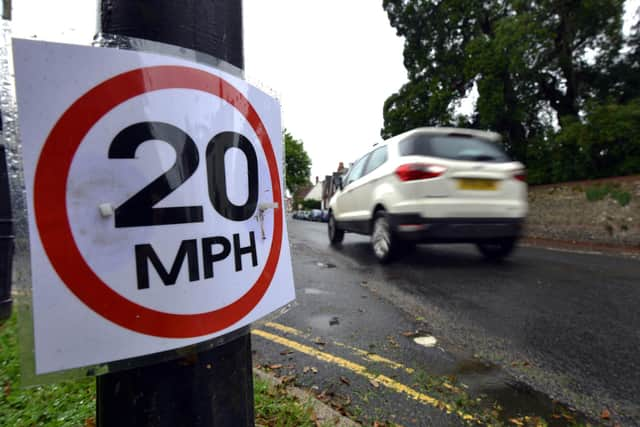Senior East Sussex councillor declines calls for default 20mph speed limits in residential roads
and live on Freeview channel 276
On Monday (June 5), Cllr Claire Dowling, East Sussex County Council’s lead member for transport and environment, considered a Green Party-sponsored petition calling for the council to establish 20 mph as the default speed limit for all of its residential roads.
The petition, signed by more than 900 people at time of publication, also called on the council to take into account “potential” deaths and injuries when it assesses speed limit reductions and to “include residents’ views on … decisions on road safety measures.”
Advertisement
Hide AdAdvertisement
Hide AdUltimately, Cllr Dowling declined to support the petitioners, sharing an officer view that a default speed limit would “not be a priority” for the council.


This decision was met with disappointment from lead petitioner Mark Slater and Green party councillor Wendy Maples (Green Party).
Cllr Maples said: “There are a number of areas where [the 20 mph speed limit] is already the default and it does worry me that this is now going to be considered, still, on a case-by-case basis, because it takes more time, more funding, more investigation.
“A universal approach means it is simply added by default. It is simpler, easier and less expensive.”
Advertisement
Hide AdAdvertisement
Hide AdShe added: “What seems to be suggested is that East Sussex has drivers with more urgent needs to get from point a to b, regardless of the impact on residents and on more vulnerable road users than all of these other places in the UK, including the nation of Wales.”
In essence, the advice from council officers was that 20 mph limits are only effective when coupled with road conditions which slow the speed of traffic. This would mean that the council would have to install traffic calming measures to make the speed limits work properly.
Although officers said the cost of these measures are not known, they were estimated to be be upwards of £15m.
Officers went on to say that ‘signed only’ 20 mph limits — i.e. limits without the sort of traffic calming measures described above — have only been found to produce a ‘negligible change in driver behaviour’ and that they are not aware of any peer-reviewed research to the contrary.
Advertisement
Hide AdAdvertisement
Hide AdDespite this, officers had also advised Cllr Dowling to draw petitioners’ attention to the council’s new speed limit programme. This programme, officers said, is set to assess the potential for lower speed limits across all of the county’s A and B class roads, with the aim of bringing forward speed reduction works on at least 25 stretches of road over a three year period.
Announcing her decision, Cllr Dowling said: “We very much believe in road safety and for the last few years we have introduced additional programmes. We’ve got more money, we’ve got the road scheme management … we’ve got the community focus schemes as well and we’re putting money into that … we’ve got the community match [programme].
She added: “Every year we have a range of road safety improvements, some of which can be 20 mph [limits] and 20 mph can come in under various schemes already, so if you’ve got a road you particularly want us to look at you can bring it forward.”